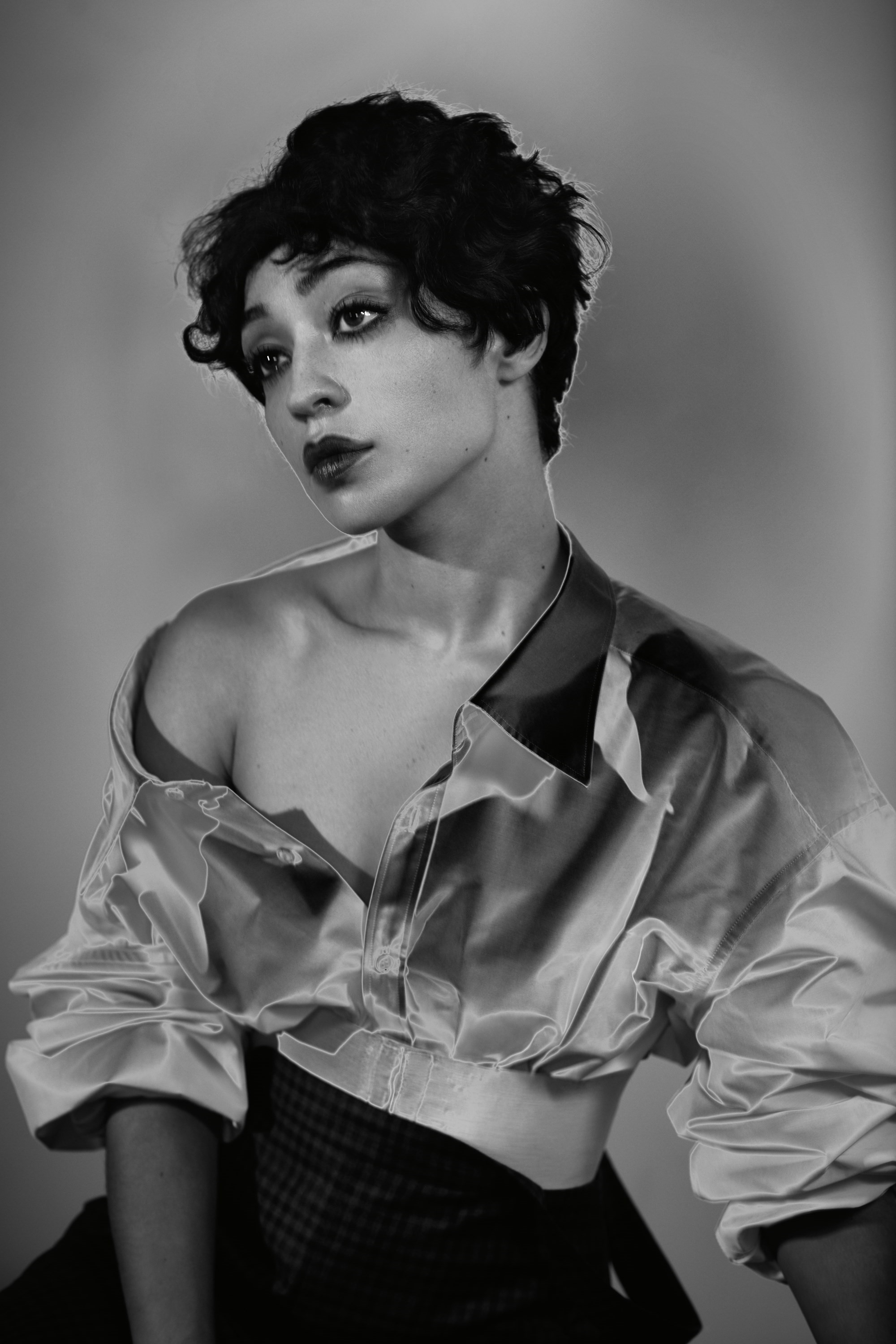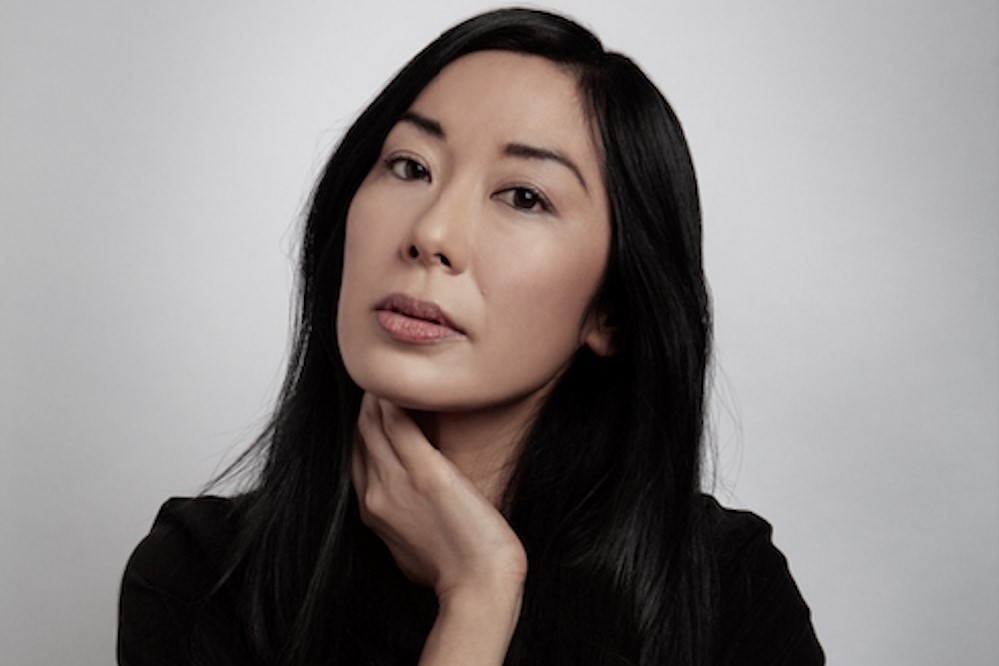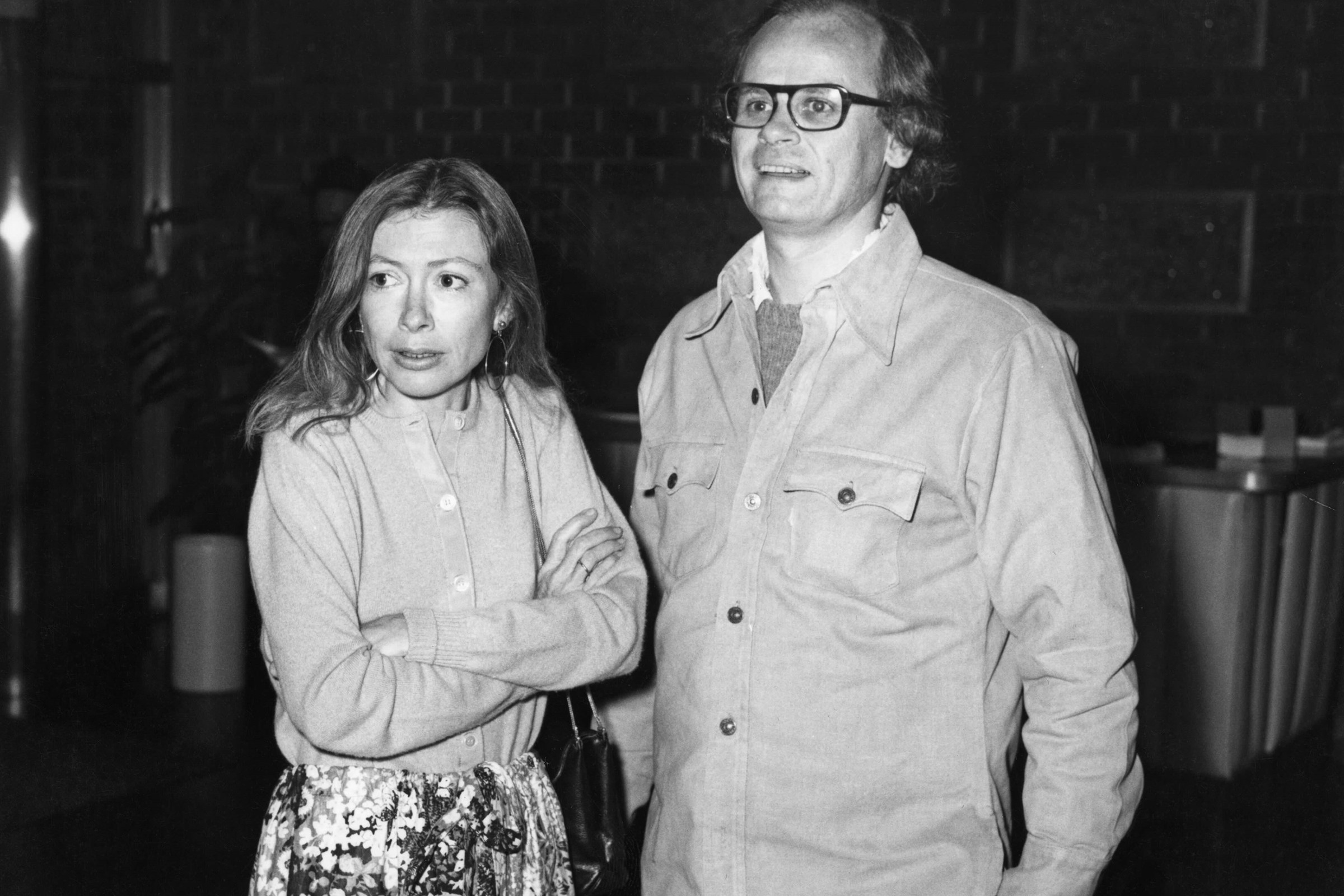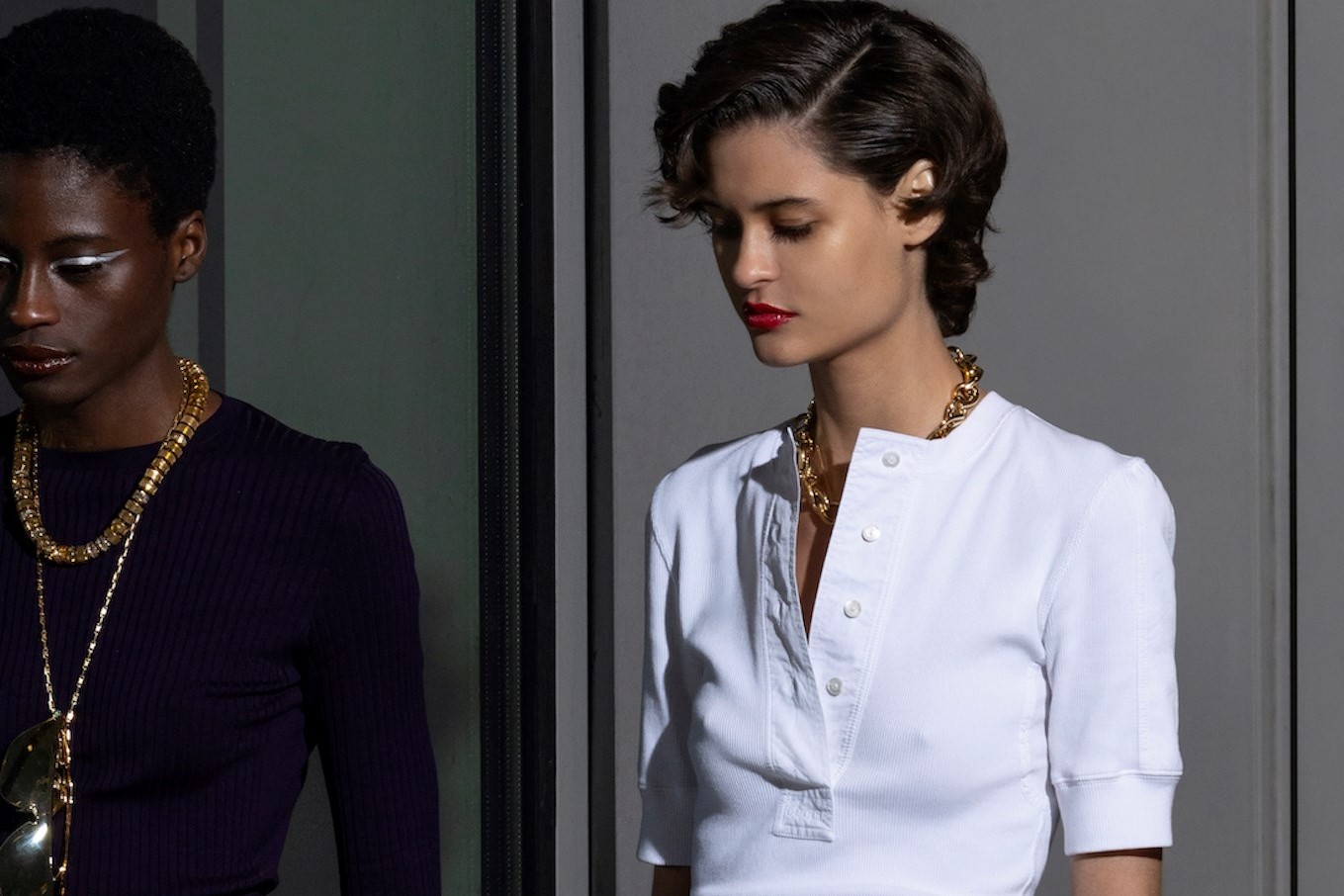Ruth Negga is early. Ten minutes early. I know this because I’m early, but it’s my job to be early. Interviewees – especially actors – are never early, and Negga’s earliness is even more perplexing considering Odette’s, a busy local restaurant in Primrose Hill, was chosen for its proximity to her home. “I know, but being late makes me anxious,” she smiles, with a shrug, “though that doesn’t always stop me.” As we’re shown to a small table in the corner, she wonders why she’s never been to Odette’s before and mentions that she usually goes to a French place down the road called L’Absinthe. I’ve heard good things about here, I assure her.
If you haven’t heard of Ruth Negga then you’re obviously not hooked on Preacher, a deranged, ultra-violent US TV show based on a comic book and produced by comedy wonderboy Seth Rogen, starring Negga’s boyfriend Dominic Cooper as Jesse Custer, a hapless, foul-mouthed Texan preacher with superpowers, and Negga as Tulip O’Hare, a gung-ho bankrobber with a knack for weapons and wheelspins. You must have missed her as mutant scientist Raina in the Marvel series Agents of S.H.I.E.L.D., and as a teleporting femme fatale with a heart condition in E4’s smash Misfits. And you definitely didn’t catch her barnstorming performance five years ago as diva supreme Dame Shirley Bassey.
“If you do anything with commitment and integrity it’ll resonate with people, they recognise that whether it’s a super quiet or loud performance” Ruth Negga
Your loss, but Negga understands. Until recently, the 35-year-old didn’t feel like she was a recognisable name, and even worried it would cost her the role of Mildred in Jeff Nichols’ film Loving, an Oscar-worthy part that has seen her nominated for a Golden Globe and a BAFTA.
Set in 1958, Loving is the true story of Mildred and Richard Loving, a young interracial couple from Caroline County, Virginia, who cross the border into Washington, DC to get married and quickly find themselves in jail for violating Virginia’s anti-miscegenation laws. Forced into exile, the pair resolve to fight, and so begins a nine-year battle that sees them take on the US establishment in the media and, ultimately, triumph in the Supreme Court.
Negga’s defiant, dignified portrayal of Mildred, opposite Joel Edgerton as her mumbling construction worker husband, is nothing short of eviscerating. If everything is right with the movie universe then both leads should soon be clutching golden statuettes.
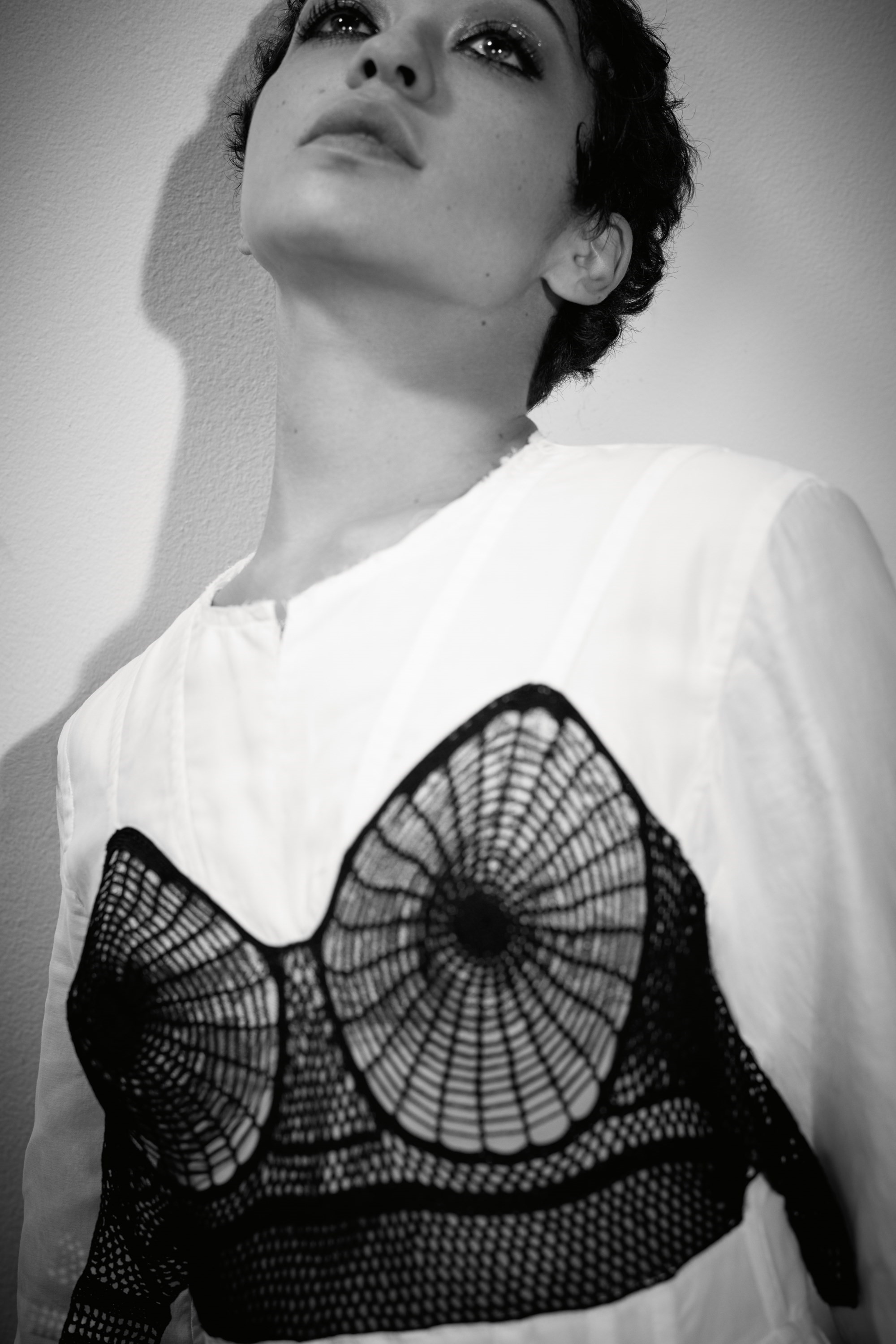
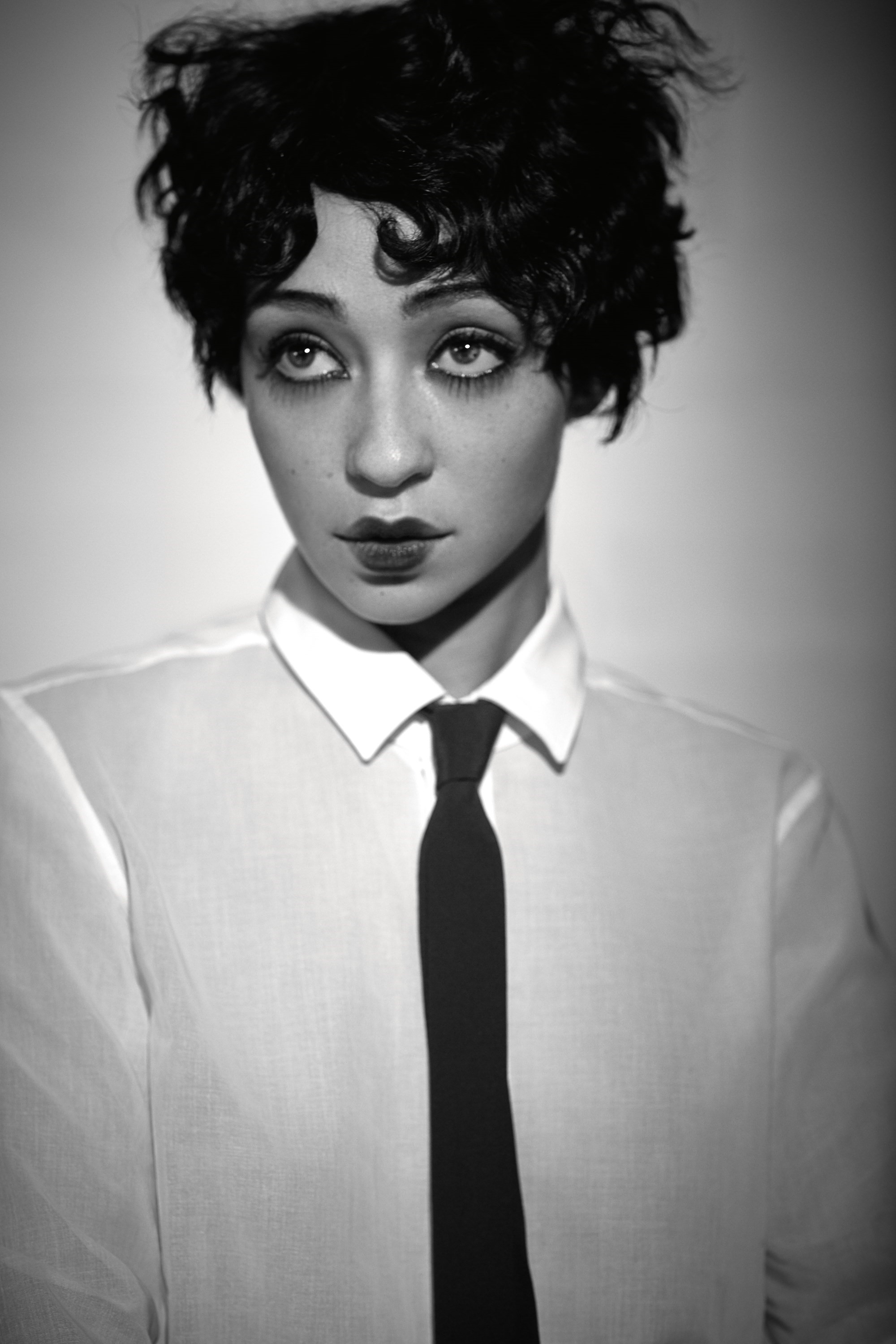
For now though, dressed in a thick cashmere cable-knit pullover and matching beanie, Negga slides into her chair, relieved to be out of the cold. Her headwear, she insists, is staying on. “I’m growing my hair and it really shouldn’t be seen in this state,” she laughs, “I’m incubating it under this miners’ hat.” Scanning the menu, she chats about how much she enjoyed her cover shoot for AnOther Magazine and how she thinks she has a face from another time: “I don’t have a modern face because my eyes are so huge... My eyes sort of hijack my face!” She’s right. On-screen, her eyes are silver-screen siren captivating; in the flesh, hovering above her petite nose and lips, they take on manga-like proportions.
She’s fascinated by actresses up to the 1940s, “all those women with a bit of backbone and grit, women you wouldn’t mess with” like Katharine Hepburn, Lauren Bacall and Bette Davis. Which reminds her, she can’t wait for the new TV show Feud about the clash-of-the- titans rivalry between Bette Davis and Joan Crawford, starring two of her favourite actresses Susan Sarandon and Jessica Lange. She also name-checks Samantha Morton, Juliette Binoche (“huge fan, Three Colours Blue especially”) and Gena Rowlands (“she’s so terrifyingly brilliant sometimes it’s almost unbearable to watch!”).
“There is something about people who don’t babble, who don’t fight for your attention that is very attractive. They draw people to them because there’s no neediness. People have to lean in” Ruth Negga
Worried she can’t be heard over the lunchtime bustle, I slowly edge the Dictaphone closer. Negga has a soft voice, with a gentle Irish lilt. But don’t be fooled; at college her nickname was foghorn because, as she admits, she can be very loud – just not today. She thinks she sounds like her mother, but with a deeper tone because she smokes. She’s 5-foot-2-and-a-half, but says she never really feels small. “Although, I was looking at a photo the other day and suddenly realised I am actually quite small,” she gasps, feigning horror. “It was like a mouse who hangs around with elephants suddenly realising it’s not the same!”
She describes herself as shy “but shy doesn’t mean that you’re necessarily quiet or a goody-two-shoes,” she’s quick to point out. “It just means that you don’t like being terribly exposed. I think we’re drawn to people who aren’t overly loquacious, don’t you? There is something about people who don’t babble, who don’t fight for your attention that is very attractive. They draw people to them because there’s no neediness. People have to lean in.” I nod in agreement, suddenly aware how far I’m leaning in.
She talks with care and precision, marshalling her thoughts, which she tries to explain aren’t in her head but floating somewhere just above it. “It’s like when I talk I have to get them,” she says, slightly embarrassed and making a grabbing gesture into thin air. “It’s not an attention deficit sort of thing, it really isn’t. It’s just how I formulate my sentences, from the ether.” She seems to relish language, scrutinising her words, playing with the way they sound; asked a question, she often repeats it to herself, trying to unwrap the meaning and get at something inside. There’s no spiel: for Negga, conversation is alive and engaged.
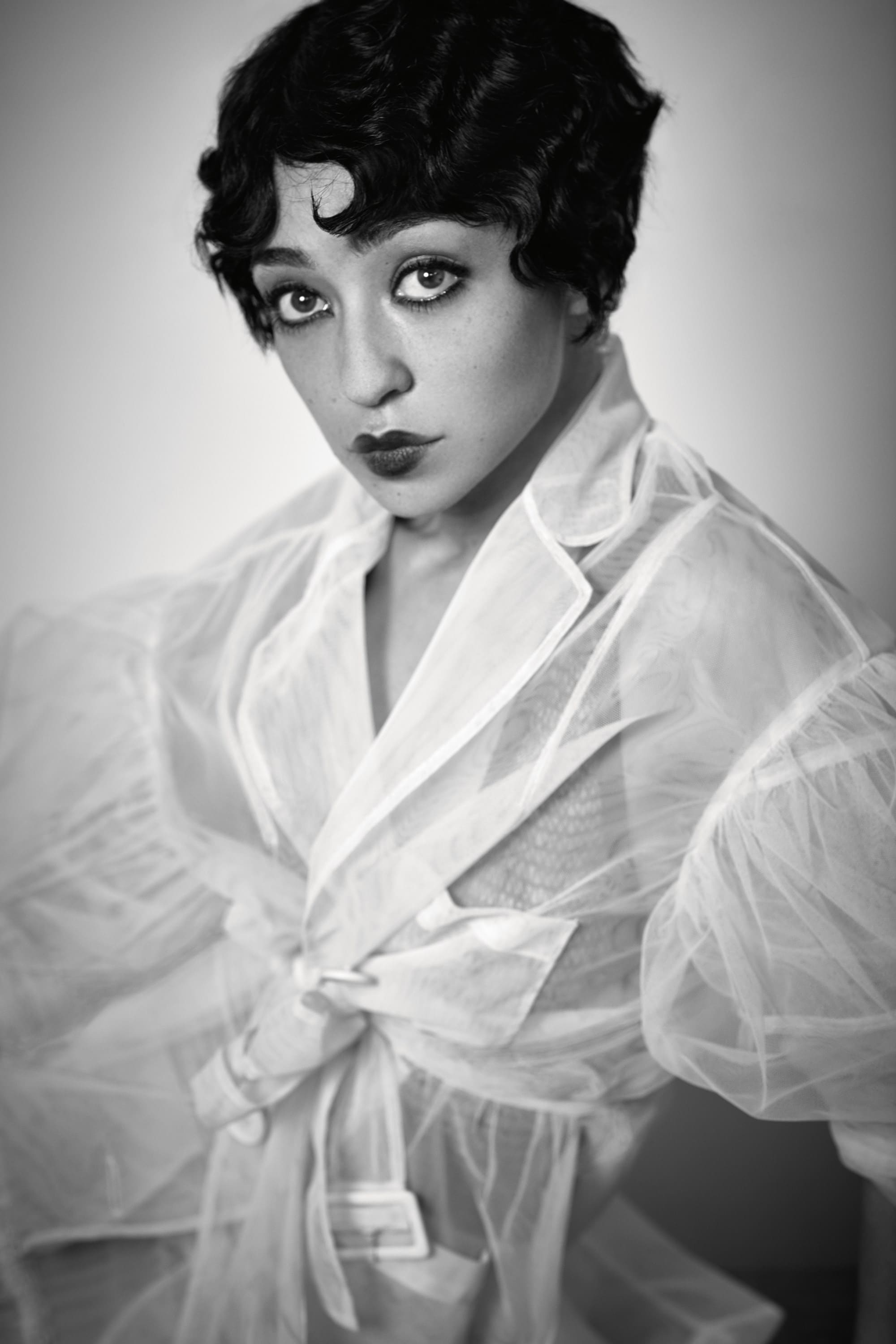
With the waiter standing by, she orders the pork belly and a large glass of Bordeaux because, she beams, “I’m on my holidays!” She has just returned from a grueling US promotional tour for Loving; not that she’s complaining, she got to shake Steve Martin’s hand backstage at The Tonight Show and she couldn’t be prouder of the film or more passionate about its significance today. “Loving is tapping into something, and it’s not about politics... People need a couple like Richard and Mildred now; they need to know that change from a grassroots level is possible, that there is hope. The beautiful thing about Mildred is her hopefulness. Mildred and Richard are you and me – the everyday person, the next-door neighbour – who took on the establishment and won. That’s very encouraging to a lot of people, and particularly now, when you feel your voice isn’t being heard or your vote hasn’t been counted.”
Mildred is a hero of Negga’s. Years before auditioning for the part, she’d seen bits of the HBO documentary The Loving Story and remembers reading Mildred’s obituary and thinking to herself, “Who is this woman?” It was the thought of playing Mildred that initially drew her to the project, “but, as a person of colour, you can’t be ignorant of the fact that there are stories about race to be told, and I wanted to be part of that.
“I’ve always had an interest in American racial history,” she continues, “and I think we can see that there are still wounds that haven’t been properly healed. I know that it’s frightening for people to talk about but unless you do, they’re never going to be healed. We’re learning that this isn’t something to be solved; it’s a continuing conversation. Equality isn’t a box we can just tick and be done with.”
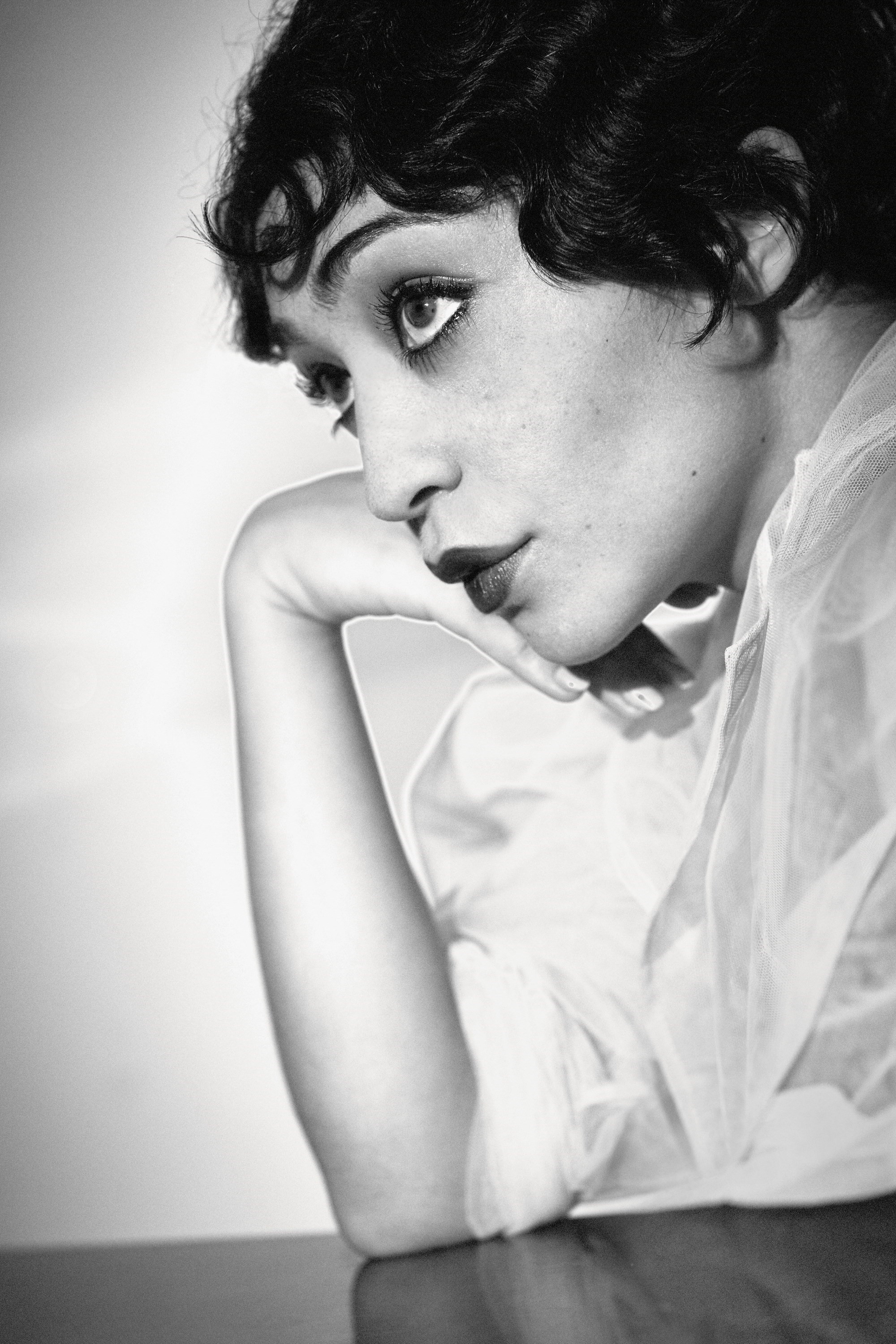
Negga’s parents – a white Irish nurse mother and, her father, a black Ethiopian doctor – met while working at the Black Lion Hospital in Addis Ababa, Ethiopia. She was born on 4 May 1982 (and not, as every online source has it, 7 January: “I think that came from an article that said I had died!”). Her first memory is standing at a bus stop, captivated by the huge tropical raindrops falling. When political unrest erupted, Negga’s mother left with little Ruth for County Limerick. “I was three or four years old, dates are a bit shady,” she explains. “When you have a peripatetic childhood dates become unimportant or peculiar, they’re a luxury for people who grow up in a 2.4 household. I vaguely remember the move.”
The plan was for her father to join them and for the Negga family to head to America. But three years later, in 1988, a phone call delivered the devastating news that her father, still in Ethiopia, had been killed in a car crash. With no grief counselling offered to children at the time, it’s only recently that she’s turned to a therapist. “I didn’t know my father very well because I was so young,” she says. “I can only rely on other people’s testimony. Apparently, I have his dry humour and his intelligence, but maybe that’s my mum being self-deprecating... I definitely look like him.”
Growing up in a large Catholic family, surrounded by her mother’s eight brothers and sisters, who all-but-one lived on the same street, and 23 cousins, helped make Negga feel less like an only child. “Not that I’m distancing myself from being an only child,” she stresses, “I think only children get such a bad rep!” And, in this loving environment, she can’t remember ever feeling different from her light-skinned relations.
“Does romantic mean When Harry Met Sally? Or does it mean Betty Blue? The fact that he kills her in the end of Betty Blue is romantic to me. It’s a different kind of romance to Sleepless In Seattle, but with the same intentions” Ruth Negga
An exhibitionist, melodramatic and gregarious – her words – she would dance around her grandmother’s living-room and make everyone join in. She hated the endless, predictable grind of school, and spent most of her time plucking up the courage to resign from her altar girl duties. She lost herself in the fairytales of Hans Christian Andersen, in particular The Snow Queen – “I love the bit when the shard of glass goes in Kai’s eye!” – and The Little Mermaid, “which is not like the Disney version at all, it ends terribly!”
She remembers finding dead birds and holding mass for them, but doesn’t think she was a particularly macabre child, just Catholic. Later, when asked if she’d describe herself as romantic, she reveals another dark-tinged seam: “Does romantic mean When Harry Met Sally? Or does it mean Betty Blue? The fact that he kills her in the end of Betty Blue is romantic to me. It’s a different kind of romance to Sleepless In Seattle, but with the same intentions.”
As a teenager, her bedroom walls were covered in pictures of Jason Priestley from Beverly Hills, 90210, Nirvana, Hendrix, U2’s Boy, Prince and “a big poster from the Ethiopian tourist board which said, ‘13 months of sunshine!’ – because in Ethiopia we have a different calendar so there are actually 13 months.” Her first crush was David Bowie in Labyrinth, she sighs.
It was the transcendent performances of Bowie and, later, Kate Bush that inspired Negga to pursue acting. “There is something about their unashamed communing with something,” she begins, sputtering like a fangirl. “They’re not too cool for school – I mean, they are too cool for school – but they’re plugging into something. It’s not that sort of punk, decimating of things, it’s creating something, it’s very spiritual, and that was always attractive to me.”
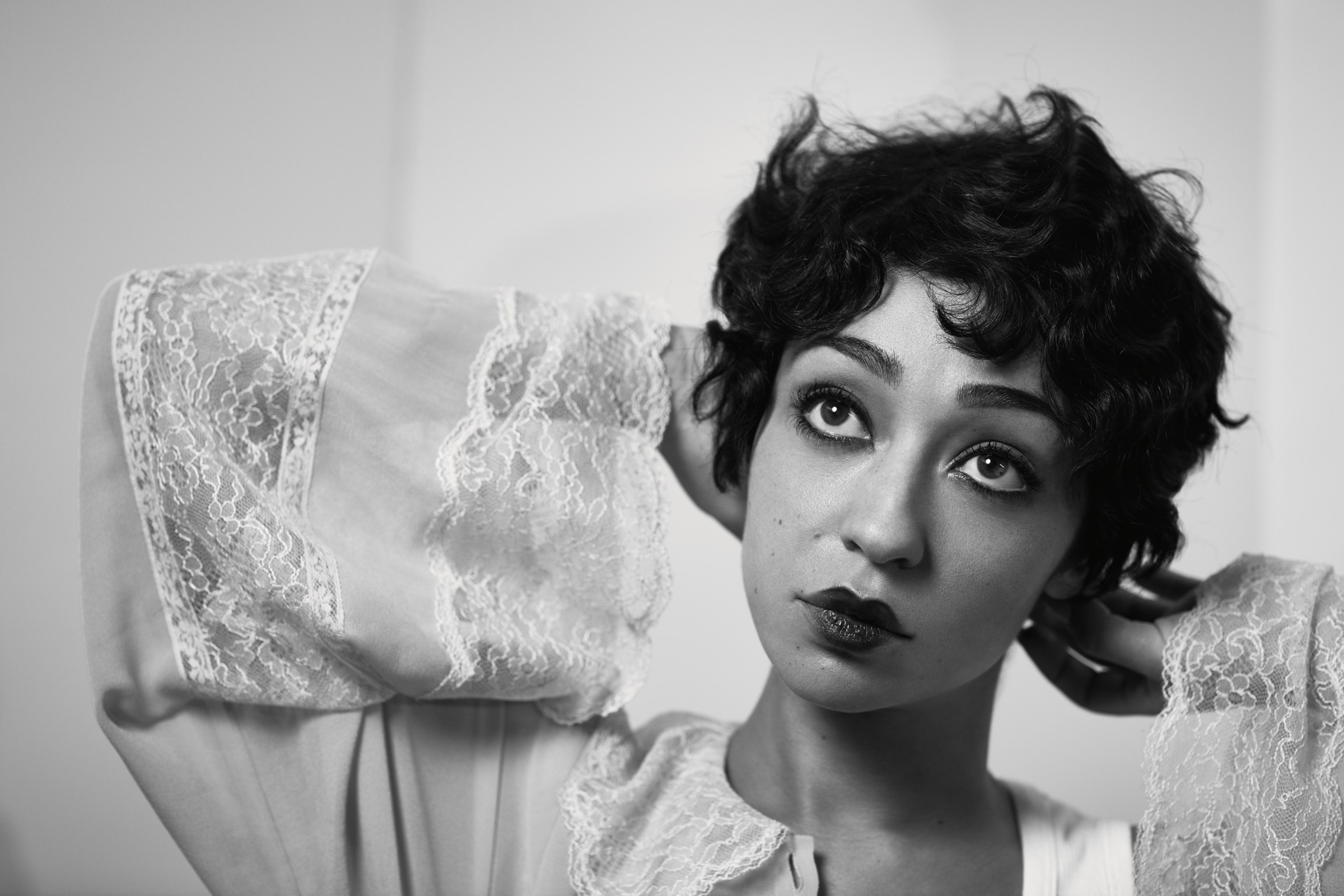
Aged 18, with her career advice results suggesting a future as an antique dealer or a bowling alley attendant, she enrolled on the BA drama course at the Trinity College Dublin Samuel Beckett Theatre. There was never a plan B, she says. Just two years after graduating, her part in Duck at the Royal Court earned her a nomination for Most Promising Newcomer at the 2004 Olivier Awards, and the attention of BBC casting agents. Steady work on TV dramas was quick to follow.
“I’ve never had to do a job other than acting. Maybe if I’d had a back-up plan it wouldn’t have worked out...” She pauses, as if giving the idea some thought. “The thing is the plan is to work, right? My only plan has been to work with people who are kind, that’s very important to me, and never to work with assholes, people who make life more difficult than it needs to be.” For the past seven years, it appears her plan also includes working with her boyfriend as often as possible.
“To be honest, I don’t know how it’s happened,” she says. “It sounds very premeditated but it’s absolutely not.” They were both in Neil Jordan’s 2005 glamrock odyssey Breakfast on Pluto, also Negga’s first film, “but we weren’t in the same scenes, Dom was a soldier in Northern Ireland who dances with Cillian Murphy.” Their first double-act came in 2009 playing lovers at the National Theatre in Phèdre, starring Helen Mirren; their offstage romance started during the production. Last year, they came together again to fight off an army of thorny orcs in the computer-game-turned-blockbuster Warcraft, and then Preacher happened.
For the record, Negga read for Preacher first. She had been nervous in her audition for the part of wild woman Tulip, so asked Cooper to put her on tape because, she explains, she’s often better on tape. “In the middle of reading the kids’ parts, he suddenly said, ‘This is fucking amazing!’ I showed him the cover of one of the comics and was like, ‘Yes, and you look exactly like him!’ He made a few calls...”
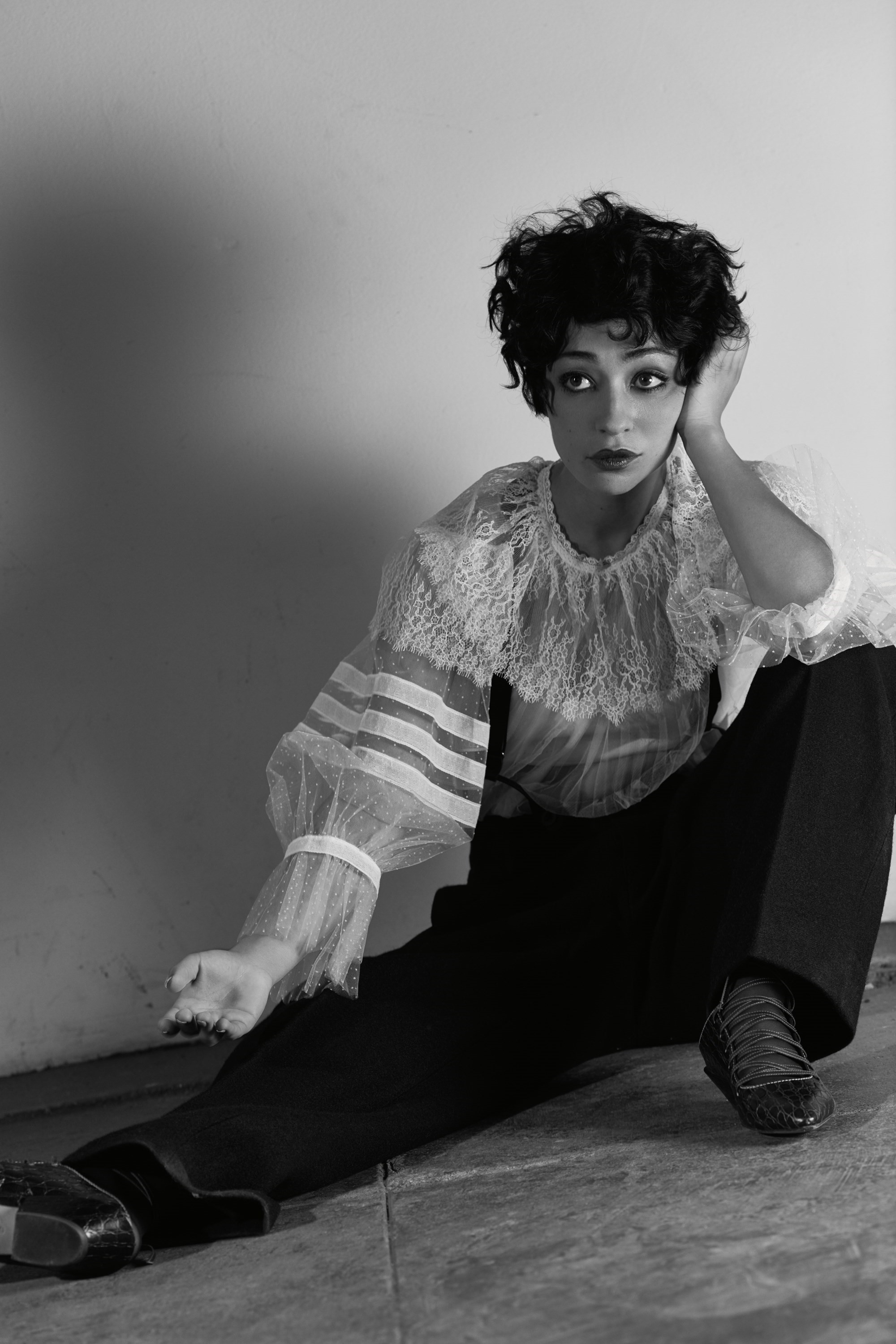
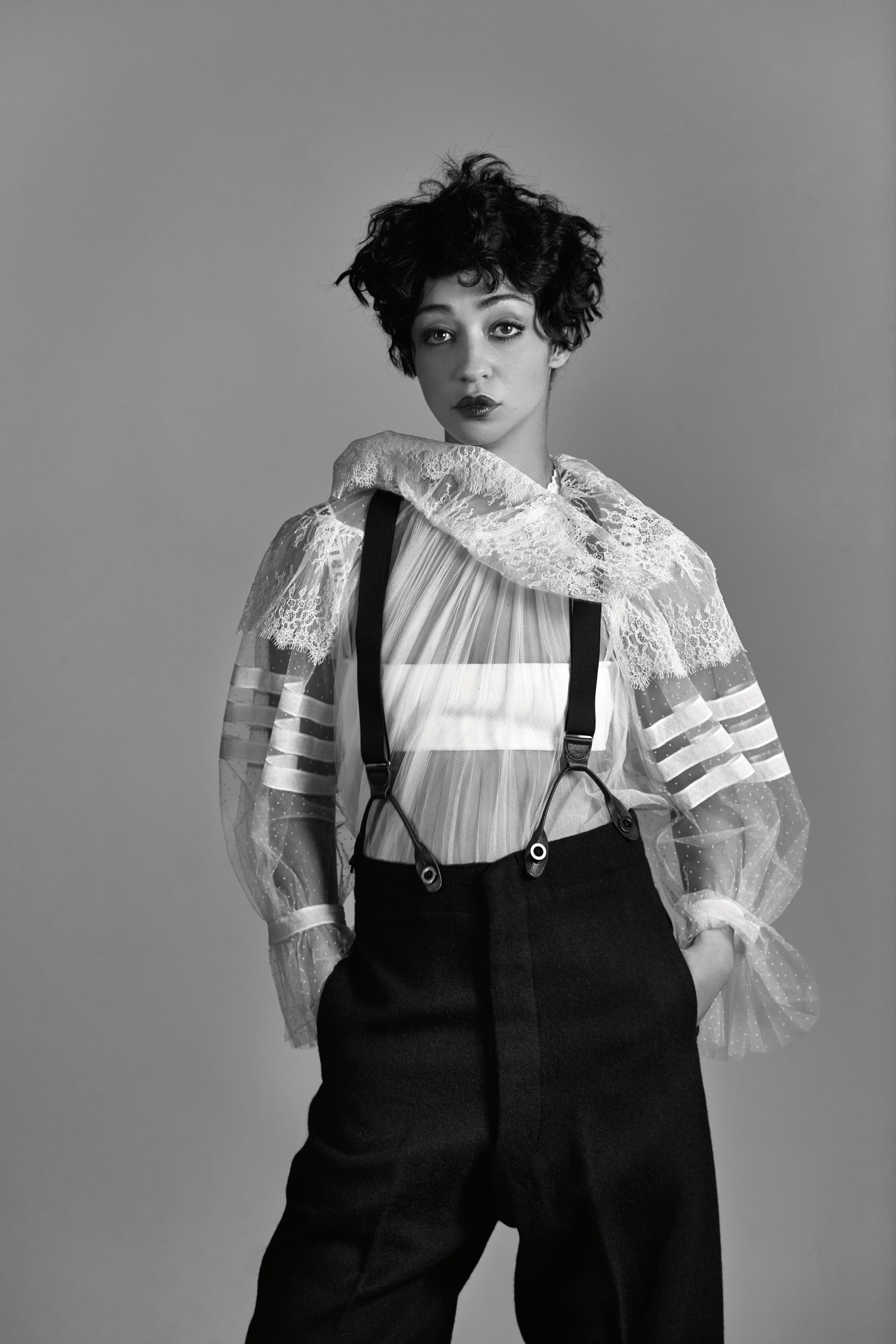
An over-the-top, explosive character like Tulip must be a release after the intense stillness of Mildred. “Actually, I think I’m always quite a ham in acting,” she says. This from a woman being heralded for one of the most nuanced performances of recent times. “Yes, ham; by which I mean using your full physicality. If you do anything with commitment and integrity it’ll resonate with people, they recognise that whether it’s a super quiet or loud performance.”
Negga and Cooper are about to return to Albuquerque, New Mexico to film the second season of Preacher but, before they do, she confesses that she needs to finish watching the first season. “I know,” she pleads, “but because of Loving I haven’t had the time.” She describes the set as a “no-assholes-need-apply territory” and “a lot of fun”, and talks about the hugeness of the New Mexican landscape, how it’s like a Georgia O’Keeffe painting, a magical place with a lot of ley lines, apparently.
“I feel very lucky to be doing what I’m doing,” she says, finishing her glass of wine. “Like all art, there’s an unquantifiable aspect to this job, and there is a huge amount of luck involved. But luck is a funny thing; good or bad, it plays an important part in everything.” She brings up the small matter of ending up on the cutting- room floor of the triple-Oscar-winning drama 12 Years a Slave: Negga played a runaway slave called Celeste and shot for three days in a crocodile-infested swamp, but the scene didn’t make the final cut. She vividly remembers the moment Steve McQueen, the director, called to let her down gently and she just knew before he had said anything. “It was very unlucky but the luck involved in that was that it was the same casting director who later cast me in Loving. So you can look at things in many different ways... Do you mind if we go outside so I can smoke?”
“Loving is tapping into something, and it’s not about politics... People need a couple like Richard and Mildred now; they need to know that change from a grassroots level is possible, that there is hope” Ruth Negga
We sit at a table on the pavement under heaters and watch a wild-eyed Husky bolt out of Primrose Hill Pets and bark at an unassuming Pomeranian, their owners eye each other suspiciously. Negga is more a cat person, she says, lighting a cigarette, but she travels too much to have one. Just the day before, the Daily Mail website photographed her and Cooper walking down this very stretch of road in matching puffer jackets. Does that level of inane intrusion bother her?
“Well, I do live in Primrose Hill which is probably not the best place,” she admits. “What can you do? It’s not part of the job and anyone who tells you that’s what you signed up for can fuck off. But also you’ve got to get over yourself about it. The worst thing you can do is look, just ask other people to let you know on a scale of ten how bad it is.” She admits there is a peacock element to being an actor but “I don’t think I’m terribly vain, in that it’s not very linked to my confidence. It’s not as important to me as it probably should be. I mean, I came today without my eyebrows being threaded and just look at these fingernails!” She holds out her hand to reveal chipped cherry varnish. Her healthy disregard for image will be put to the test in the run up to the Oscars; maybe, she says, but she doesn’t think it’ll change her.
Negga is equally uninterested in social media and proudly claims never to have been on Facebook. “I barely have a phone! It broke a few weeks ago and it was such a relief. I delayed taking it into a shop. I love being not contactable.” So, when everyone else is posting selfies on Instagram in between takes on Preacher, what is she doing? “I play pranks,” she says. “My best prank – I’ve done it a lot of times – is putting cling film over the toilet seat!” My expression obviously gives something away. “What? Is that awful? I thought it was quite funny... Look, it’s never going to be a number two situation because you’re going to feel it on your arse! So, people are safe... unless it’s a serious emergency... Oh no.”
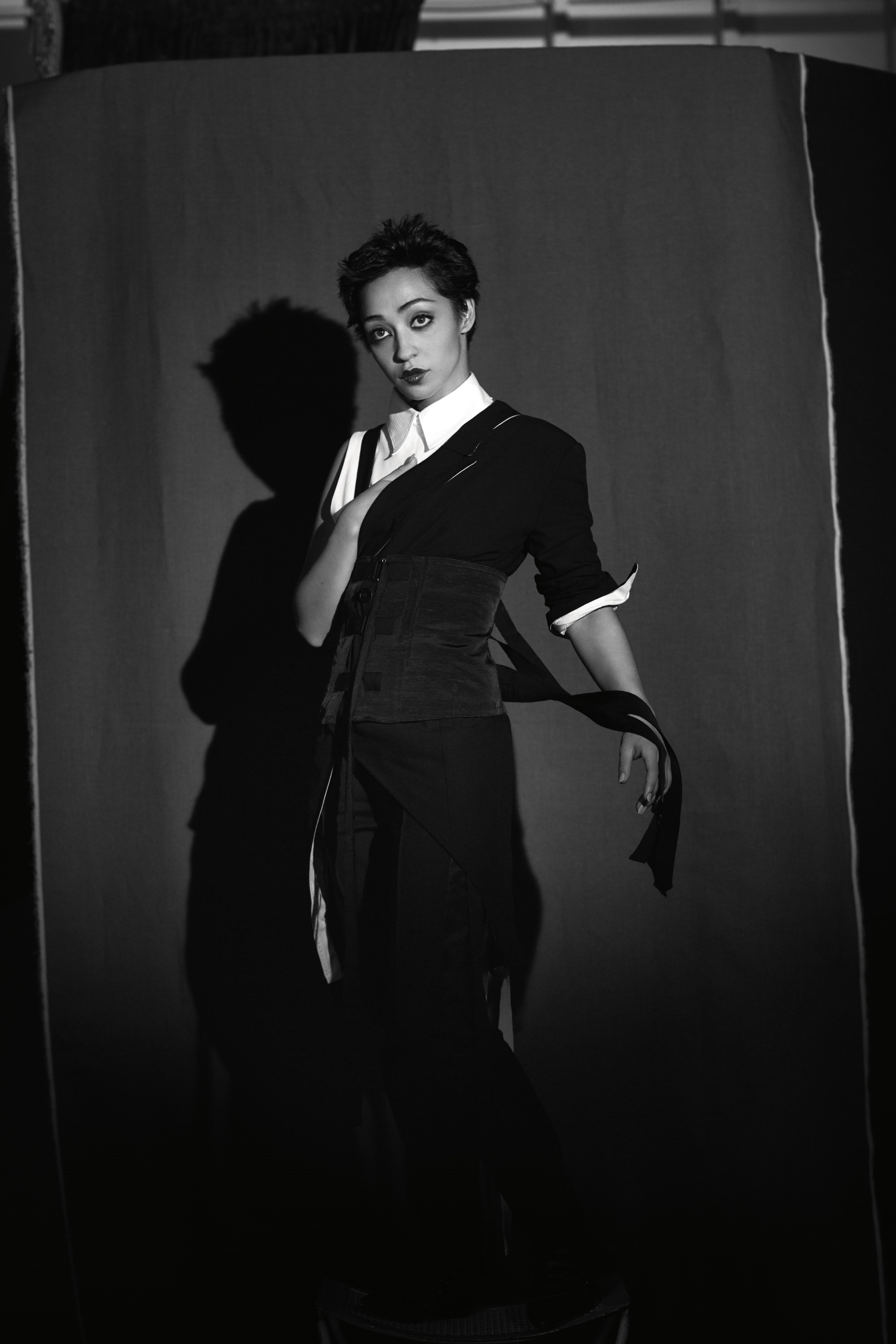
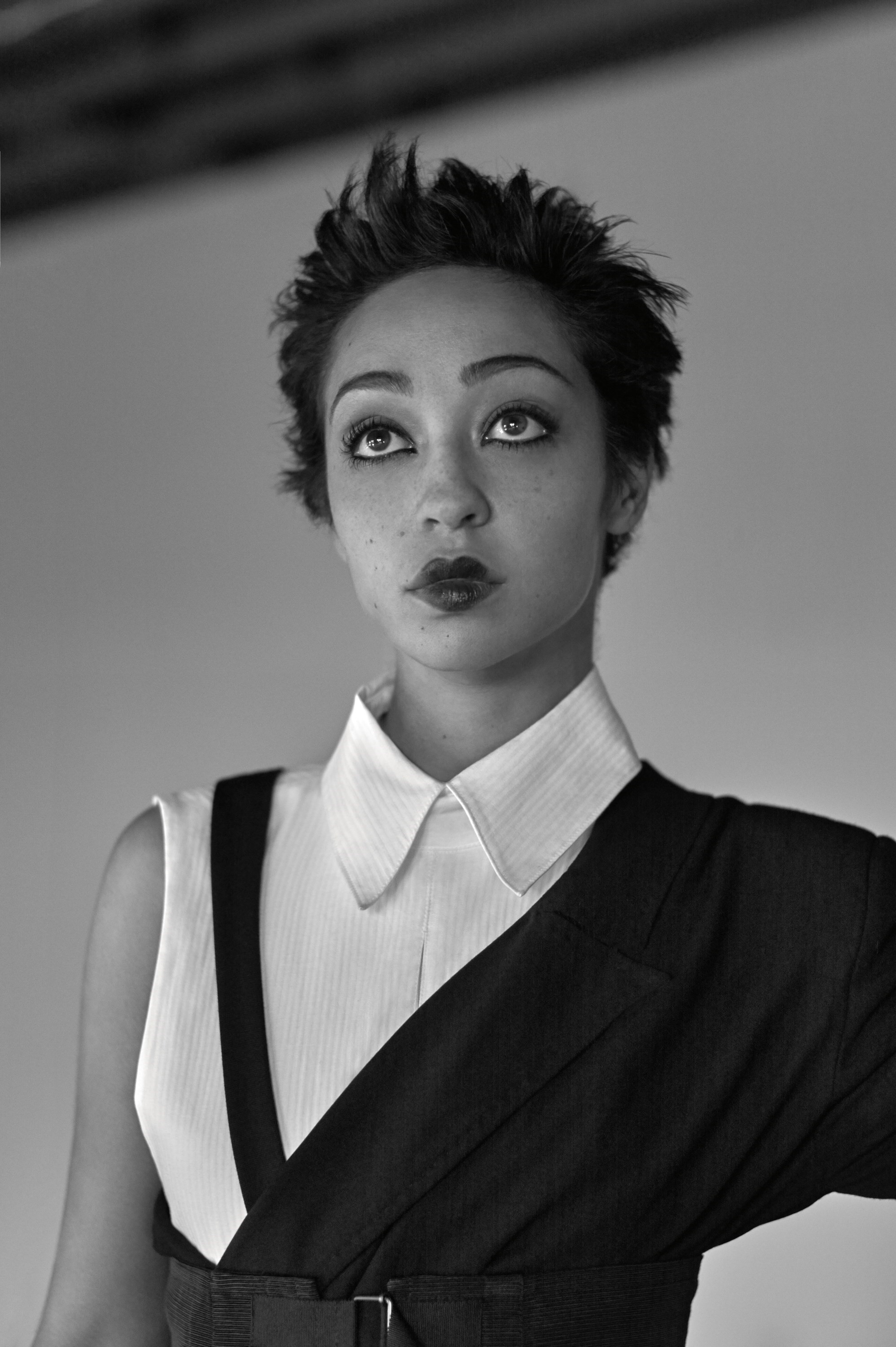
Her downtime at home is more about feeding her brain. She’s just binged on Stranger Things and is three seasons into The Good Wife. She recommends Fleabag, her friend Phoebe Waller-Bridge’s BBC3 comedy series, and The 13th on Netflix, which “is all about how the American prison system is the mirror of slavery”. She’s also a bookworm: “I’ve just finished Swing Time, Zadie Smith’s new novel. Brilliant. And then, oddly enough, I read a memoir about surfing called Barbarian Days.”
Our lunch has now overrun into a two-and-a-half-hour encounter, and Negga has to dash. Before she leaves, I wonder if there’s a piece of writing that she’s returned to over the years, mantra-like.
“Yes, Maya Angelou’s poem And Still I Rise,” she says, stubbing out her cigarette. “It’s one of those things I try to remember whenever things are looking difficult or insurmountable. Maya Angelou is a hero of mine because she acknowledged everything about herself, good and bad, and it was all OK. And I think we have a tendency now to latch on to only the good aspects of ourselves and that does not the whole person make. That’s denying a part of yourself and it’s dangerous, it’s not healthy. It’s so important to own everything about yourself.”
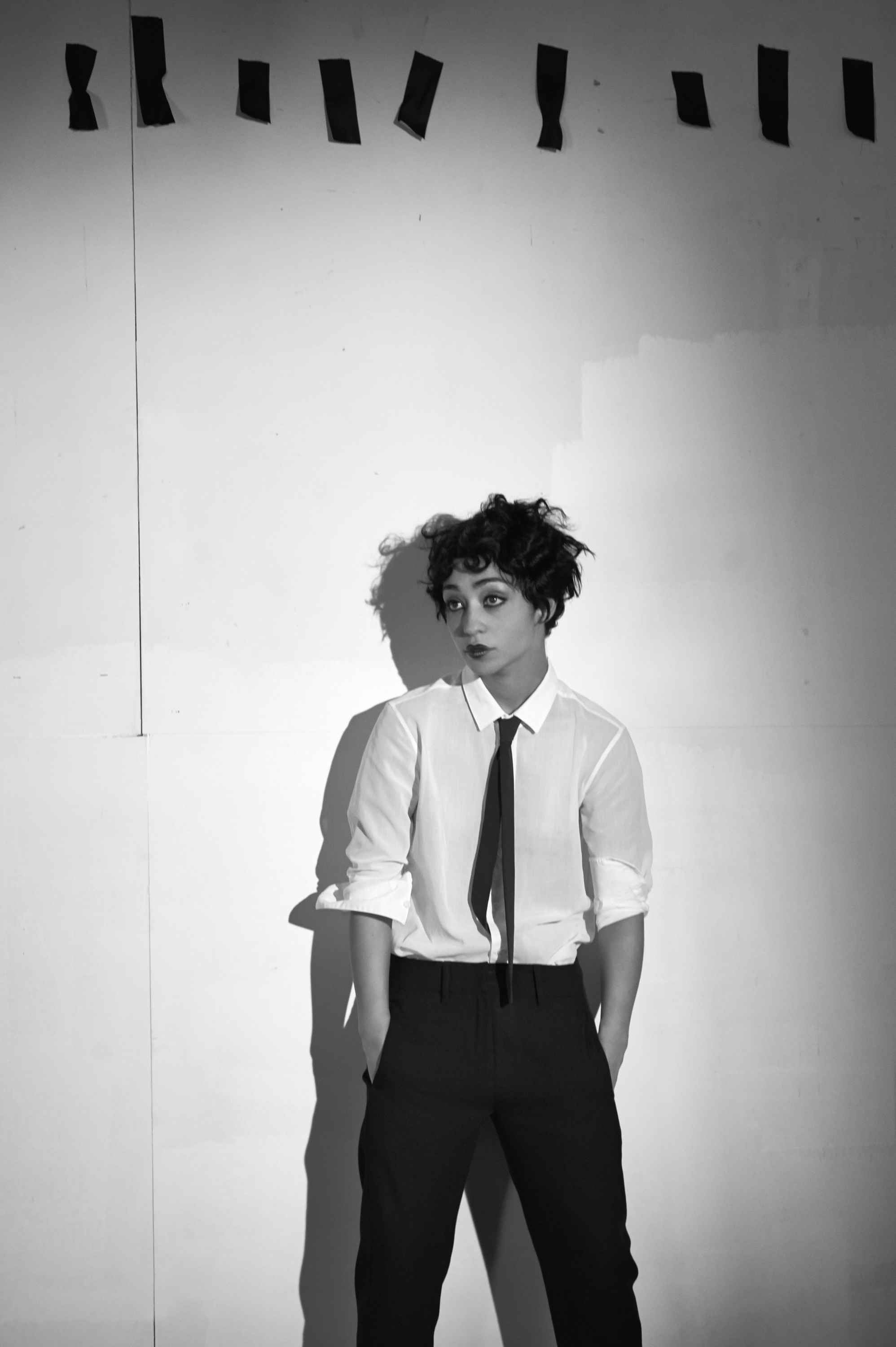
Hair Holli Smith at LGA Management; Make-up Dick Page at Jed Root; Set Design Kadu Lennox at Frank Reps; Manicure Marisa Carmichael at Streeters; Photographic Assistants PJ Spaniol, Siggy Bodolai, Chris Martin; Digital Tech Justin Ruhl at Dam Capture; Styling Assistants Rosie Arkell-Palmer, Megan King, Jessica Gerardi; Hair Assistant Nathan Nguyen; Set Design Assistant Joanna Seitz; Post-production Two Three Two; Production Wes Olsen at Connect the Dots; Production Co-ordinator Jane Oh at Connect the Dots; Production Assistants Ben Kilpatrick, Nikki Patrlja.
This interview originally featured in AnOther Magazine S/S17, out now.
